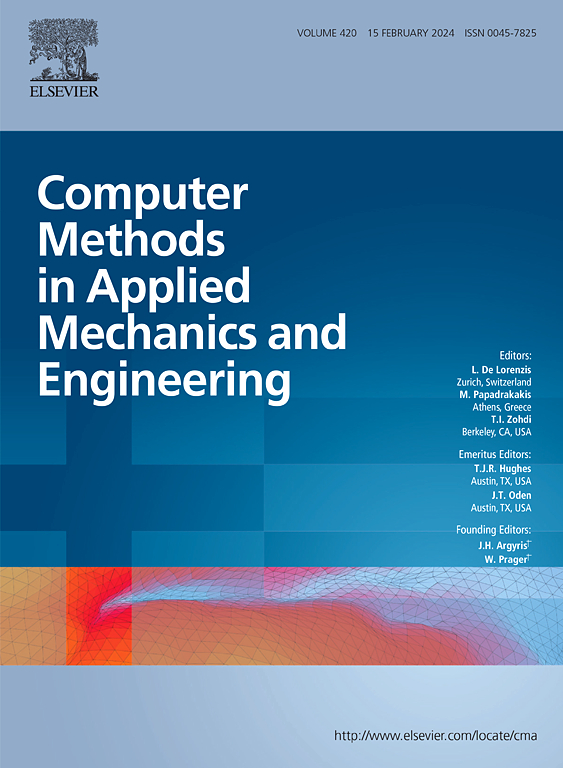High-efficient sample point transform algorithm for large-scale complex optimization
IF 6.9
1区 工程技术
Q1 ENGINEERING, MULTIDISCIPLINARY
Computer Methods in Applied Mechanics and Engineering
Pub Date : 2024-10-19
DOI:10.1016/j.cma.2024.117451
引用次数: 0
Abstract
Decomposition algorithms and surrogate model methods are frequently employed to address large-scale, intricate optimization challenges. However, the iterative resolution phase inherent to decomposition algorithms can potentially alter the background vector, leading to the repetitive evaluation of samples across disparate iteration cycles. This phenomenon significantly diminishes the computational efficiency of optimization. Accordingly, a novel approach, designated the Sample Point Transformation Algorithm (SPTA), is put forth in this paper as a means of enhancing efficiency through a process of mathematical deduction. The mathematical deduction reveals that the difference between sample points in each iteration loop is a simple function related to the inter-group dependent variables. Consequently, the SPTA method achieves the comprehensive transformation of the sample set by establishing a surrogate model of the difference between the sample sets of two cycles with a limited number of sample points, as opposed to conducting a substantial number of repeated samplings. This SPTA is employed to substitute the most time-consuming step of direct calculation in the classical optimization process. To validate the calculation efficiency, a series of numerical examples were conducted, demonstrating an improvement of approximately 75 % while maintaining optimal accuracy. This illustrates the advantage of the SPTA in addressing large-scale and complex optimization problems.
大规模复杂优化的高效采样点变换算法
分解算法和代用模型方法经常被用来解决大规模、复杂的优化难题。然而,分解算法固有的迭代解析阶段可能会改变背景向量,导致在不同的迭代周期中重复评估样本。这种现象大大降低了优化的计算效率。因此,本文提出了一种名为 "采样点变换算法"(SPTA)的新方法,通过数学推导过程来提高效率。数学推导表明,每个迭代循环中样本点之间的差值是一个与组间因变量相关的简单函数。因此,相对于进行大量重复采样,SPTA 方法通过建立有限数量样本点的两个循环样本集之差的代用模型,实现了样本集的综合转换。这种 SPTA 被用来替代经典优化过程中最耗时的直接计算步骤。为了验证计算效率,我们进行了一系列数值示例,结果表明在保持最佳精度的同时,计算效率提高了约 75%。这说明了 SPTA 在解决大规模复杂优化问题方面的优势。
本文章由计算机程序翻译,如有差异,请以英文原文为准。
求助全文
约1分钟内获得全文
求助全文
来源期刊
CiteScore
12.70
自引率
15.30%
发文量
719
审稿时长
44 days
期刊介绍:
Computer Methods in Applied Mechanics and Engineering stands as a cornerstone in the realm of computational science and engineering. With a history spanning over five decades, the journal has been a key platform for disseminating papers on advanced mathematical modeling and numerical solutions. Interdisciplinary in nature, these contributions encompass mechanics, mathematics, computer science, and various scientific disciplines. The journal welcomes a broad range of computational methods addressing the simulation, analysis, and design of complex physical problems, making it a vital resource for researchers in the field.

 求助内容:
求助内容: 应助结果提醒方式:
应助结果提醒方式:


